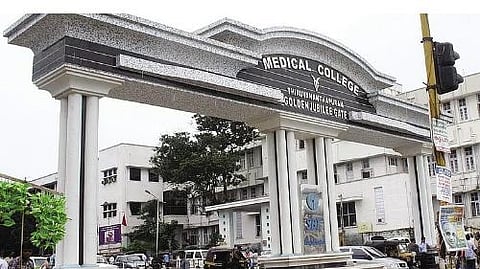

THIRUVANANTHAPURAM: The rising number of unclaimed and unidentified dead bodies at the Thiruvananthapuram Medical College Hospital mortuary has become a growing concern.
Between May 1, 2024 and May 13, 2025, a total of 63 such bodies were cremated after remaining unidentified and unclaimed. As of Monday, 20 remain in the mortuary.
Of these, seven have received police clearance for cremation and are awaiting procedural completion. The remaining wait in cold storage for someone to identify them, or for formalities to be completed.
According to hospital officials, most of these bodies are of men aged above 50. They may have been from within the city or other states, but who have lived here for years.
Some are abandoned by their families. Others may have walked away from their pasts. Many are simply homeless. A large number are brought in with serious or failing health conditions.
“This number can change any day. Many people come here in critical condition and we give them the best treatment. But often they are unwilling to reveal who they are or where they come from. We can only hope they recover and speak up, but sometimes they don’t make it,” said Dr T P Jayaprakash, resident medical officer at the MCH.
Step-by-step process
Unclaimed bodies go through a step-by-step process. Once a person dies without an identity or relatives, the hospital informs the police. The police then verify whether the deceased has anyone to claim the body. If there is none, a letter is submitted to the RMO. This is followed by clearance by the city corporation and only then can the hospital proceed with cremation at Santhikavadam, at government expenditure.
Sunilkumar B S, superintendent of the MCH, said the system works without disruption despite the rising numbers. “We have 48 mortuary chambers. Bodies are typically disposed of within three-five weeks. Sometimes it stretches beyond a month if the police or corporation processes take longer. But there has never been a situation where we couldn’t manage,” he said.
Police verification is more easy when the person is a local. In such cases, identification is often quicker, and notices or newspaper alerts may not be required. However, for unidentified bodies from outside the district or state, the police initiate wider inquiries. Notices are issued and advertisements are published in newspapers to trace family members or anyone who might recognise the person.
There have been instances where relatives turn up years later asking for a death certificate for property claims or other legal reasons.
Record of DNA
“Sometimes, people go missing from home and families never look for them until a legal matter brings it up. Even when there is no one to claim them, the hospital takes DNA samples of all unidentified bodies. When they do come, we can only help if DNA is on record,” the RMO added.
Interestingly, not all the unclaimed bodies are cremated. If they meet certain health criteria and are not severely decomposed or affected by organ failure, some are handed over to the anatomy department for academic use. This must happen within two weeks.
The bodies are stored at 8 degrees Celsius, which keeps them preserved for up to two to three weeks. After that, decomposition begins, and the conditions must be adjusted. There is no deep-freezing facility in the mortuary. Storing bodies at sub-zero temperatures would be costly. “We don’t store bodies under -10C. That kind of infrastructure is expensive. We go by standard procedures,” said the RMO.
Postmortem is mandatory in case of deaths in accidents or under suspicious circumstances. The hospital handles cases from Thiruvananthapuram, Kollam and sometimes even Kanyakumari. “From Kanyakumari, we receive people who may be originally from there but living here. We don’t take cases directly from other states,” said the RMO.
Verification can take longer for patients brought in from remote police station limits. “That is when we see delays. It is not easy when police stations are in distant areas and communication takes time,” he added.